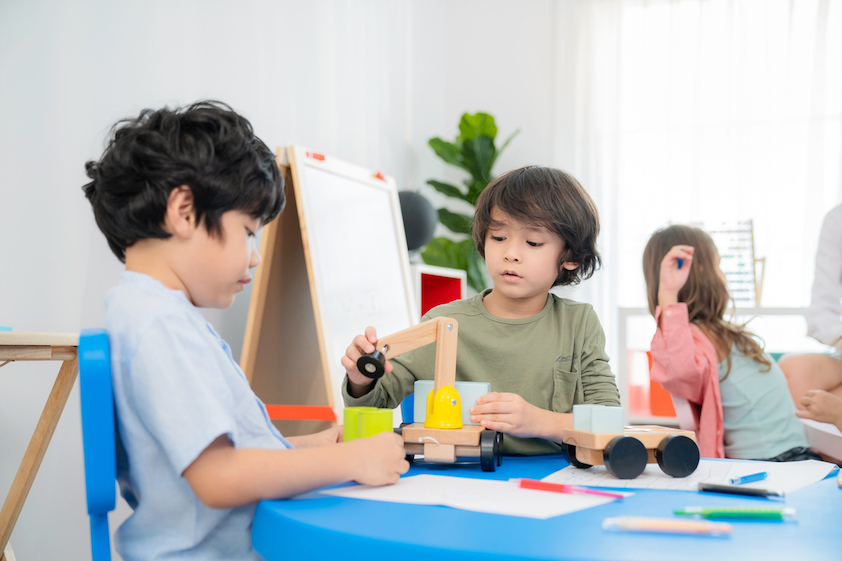For children with autism, developing social skills can be a challenging endeavor, but it is critical for their ability to interact with the world around them. Social skills classes are designed to teach these children how to communicate effectively and navigate social situations more comfortably. By providing structured settings where children can learn and practice these essential skills, these classes can make a significant difference in their lives. Below, we delve into the many ways social skills classes benefit children with autism.
Understanding How Social Skills Classes Aid Children With Autism
Social skills classes offer a nurturing learning environment where children with autism can acquire the unwritten rules of social behavior. Children are taught how to read facial expressions, interpret body language, and understand the ebb and flow of conversation. These classes are specifically tailored to meet the needs of children with autism, accommodating their unique learning styles.
Trained professionals deliver the curriculum through a variety of interactive and engaging activities. These structured classes are often based on evidence-based practices that have been shown to be effective in helping children with autism develop social skills. Role-play, video modeling, and group activities are common techniques used.
One of the key benefits of social skills classes is the provision of a space to practice social interaction in a low-stress, controlled environment. With repetition and reinforcement, children with autism can gradually internalize the skills they learn. This methodical approach can help them to make meaningful improvements in their interactions outside of class as well.
Furthermore, social skills classes for kids are designed to be inclusive, allowing children with varying levels of ability to participate and learn together. This inclusive approach not only helps in skill acquisition but also fosters a sense of belonging and acceptance among the children.
Enhancing Communication Abilities Through Structured Interactions
Enhancing communication skills sits at the heart of social skills classes. Children with autism often have difficulty initiating conversations, maintaining appropriate conversational exchanges, and understanding the nuances of language. Classes aim to mitigate these challenges by focusing on clear, direct communication tactics.
Through role-play scenarios and guided discussions, children practice initiating conversation and responding to others. This hands-on experience is invaluable, helping them understand the rhythm of back-and-forth conversation. The controlled class environment ensures they can do this without the pressure of real-world consequences if mistakes are made.
Building Confidence and Reducing Anxiety in Social Settings
One of the most significant challenges for children with autism is the anxiety that can arise in social situations. Social skills classes help to alleviate this by consistently exposing children to social scenarios in a secure environment, gradually building their confidence as they master new skills.
Instructors also teach coping strategies for handling social stress. Children learn to identify triggers that cause anxiety and practice techniques such as deep breathing and seeking out a quiet space when feeling overwhelmed. These coping skills are crucial for children with autism to manage their emotions in social contexts.
As children become more adept at interacting with others and using their new social skills, their personal self-esteem naturally begins to grow. This increasing self-assurance can be transformative, making them more willing to participate in group activities and take social risks.
The Role of Peer Modelling and Role-Play in Social Development
Peer modeling is a cornerstone of social skills training, utilizing the power of observation and imitation to encourage social learning. Children with autism often learn best by seeing behavior in action, and social skills make this possible. Watching peers navigate social situations successfully can inspire children to attempt similar interactions.
In a class setting, role-play is a complementary technique to peer modeling. Role-play allows children to practice social scenarios in a controlled and safe environment. They can experiment with different responses and behaviors to find what works best for them, receiving immediate feedback from their instructors and peers.
Role-play also presents opportunities for children to understand perspective-taking, an area often difficult for those with autism. By playing different roles, children can learn to recognize and consider the feelings and thoughts of others, which is vital for empathetic interactions.
Overall, the structured nature and supportive environment of social skills classes provide children with autism the tools they need to interact more comfortably and effectively with others. By focusing on communication, building confidence, and utilizing peer models, these classes play an instrumental role in fostering the social development of participants. As we continue to understand and refine these methods, the potential for improved outcomes in the lives of children with autism expands, promising a future of greater inclusion and enriched social connections.
